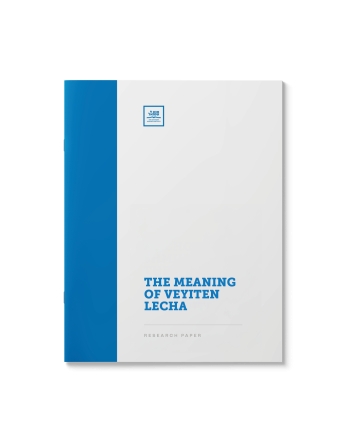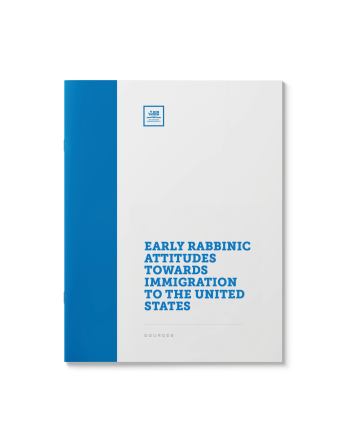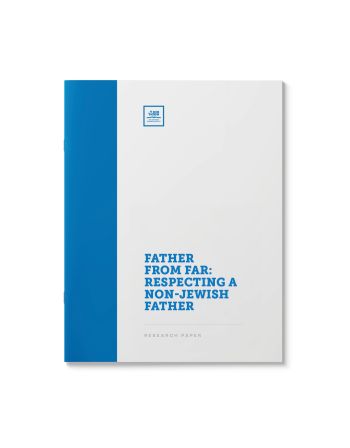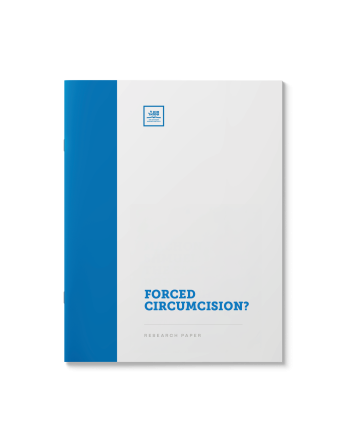- Faith and Religion - עניני דת ואמונת ה׳
- Law and Justice - משפט צדק
- Torah and Science - תורה ומדע
- The Holy Temple - עניני בית המקדש
- Miscellaneous - שונות
- Current Events - עניני השעה
- Moshiach and Redemption - משיח וגאולה
- Ethics and Morality - מילי דחסידותא
- Jewish Identity - זהות היהודית
- The Nations of the World - בין ישראל לעמים
- Prayers and Blessings - עניני תפלה וברכות
- Synagogue and Rabbinic Matters - עניני בית הכנסת ורבנות
- Shabbat and Jewish Holidays - עניני שבת וימים טובים
- Contemporary Matters - נושאים עכשויים
- Family Matters - משפחה היהודית
- Women and Feminism - מעמד האשה ביהדות
- Money Matters - משא ומתן
- Lifecycle Events - מעגל החיים
- Language and Literature - עיונים בשבילי התורה
- Biblical Events and Figures - מאורעות ואישי התנ״ך
- Kabbalah and Jewish Mysticism - קבלה ותורת הסוד
- Jewish Practice and Traditions - מסורת ומצוות תמידיות
-
Do Lifestyles Have Alternatives? [New!] $39.00
Since the genesis of humanity, the family unit has comprised of a man and woman – the formula for procreation. There are, however, some who struggle with traditional orientations that depart from this standard.
Should this issue be cast as merely a matter of human rights? What may be a healthy balance between compassion and adherence to Jewish law?
A collection of responses and essays by contemporary Rabbinic voices.
Related: Gender Identities -
Do Winds of Change Blow in Shul? $39.00
In Jewish practice, adopted customs are as binding as statutory law.
To what extent must a shul and a community maintain their customs?
When, if ever, may traditions be changed?
-
Does Brushing Teeth Brush over Shabbos? $39.00
Brushing teeth triggers various halachic concerns about the violation of Shabbat. This paper deconstructs the practices of oral hygiene to examine if there are issues of chovel, schita, uvdin d’chol and memareach.
-
Don’t Ask, Don’t Tell: Non-Orthodox Jews and Shabbat Observance $75.00
Inviting non-Shomrei Shabbat to attend Shul or meals at your
home is often also an invitation for them to drive on Shabbat. What are the
laws of this overlooked yet critical issue? Do the ends ever justify the means?
How can we balance our love for our fellow with our love for halacha? -
Dots and Squiggles $39.00
Explore the origins of Taamei HaMikra and discover when and where
unconventional trop is applied. This paper also includes a discussion of the
interplay between dikduk and trop. -
Dust and Ashes: The Conflict Between Burial and Cremation $39.00
Why reducing the sanctuary of the soul to a pound of ashes is an unforgivable sin.
-
Dynamics of Dispute $39.00
The Talmud describes an instance where Rava appears to have completely dismantled a series of laws proposed by Rabbi Shimon bar Yochai. When may an Amora dispute a Tanna? An in-depth review.
-
Early Rabbinic Attitudes towards Immigration to the United States (Sources) $39.00
Land of the free. During the 19th century, unprecedented numbers of European Jews emigrated to the Free World. What are the earliest rabbinic sources that address the challenges facing the new immigrants? Were there any positive sentiments expressed by leading Torah authorities about the freedom and opportunity that America afforded? Also, did King Solomon bring gold from the “Goldene Medina”?
-
Evolution of Prayer $75.00
Beseeching the Creator for His benevolence and salvation is a practice of universal import and value. But how did the uniquely Jewish form of prayer evolve? What was the process by which the first siddurim were designed?
Part II in a Series
-
Extending an Olive Branch (Sources) $39.00
Having survived the Great Flood, Noach was comforted by the sight of the dove clutching an olive leaf, the proverbial sign of peace.
What is unique about the olive leaf? What was the message it conveyed to Noach? What relevant lesson can be gleaned from this incident? -
Familial Bonds in the Hereafter $39.00
“Either way, they are My children” [Talmud].
Blood is thicker than water, they say. The bonds of family are the anchor of an emotionally and spiritually healthy life. But what happens to these relationships after one passes on? Do we “meet again on the other side”? Do families stick together in the hereafter? What about teachers and their pupils? Is this contingent on whether the two are buried in close proximity?
Do the souls of the departed maintain a relationship with those left behind? Do they relate to and empathize with the trivialities of our corporeal existence? Does prayer at their grave-site invoke merit on their behalf? -
Father from Far: Respecting a Non-Jewish Father $39.00
A study of the rights and responsibilities of a Jewish child to a gentile parent. Does the prohibition of cursing a parent apply? What are his kibud av obligations? And after the father dies, does the son tear kriah? Does he say kaddish?
-
Feasts of Gratitude $39.00
G-d’s benevolence is all around us. Every day we experience divine salvation whether we know it or not. But sometimes these events truly transcend the natural order for which we owe G-d an additional debt of gratitude.
What is the appropriate way to express thanks to G-d when experiencing deliverance from danger? Is it preferable to do so discreetly or is a public celebration in order? What is the basis for the common custom of inviting friends to participate in a Seudas Hoda’ah (feast of gratitude)?
Related: Thanking G-d for Goodness Parts I and II -
First Shofar $39.00
The shofar is an ancient musical instrument used to call the Jewish people together. It was blown to announce the new month, before the commencement of battle, and other occasions. It is still used on Rosh Hashanah and the closing of Yom Kippur to call the people to repentance. When was the shofar used for the first time?
-
Fish Heads and Black Cats – Superstition and the Jewish Tradition $75.00
Men have forever clung to non-rational practices to ensure their safety and success. But the Torah requires faith in G-d and avoidance of divination and the like. Where is the line between prohibited and permissible divinations or superstitions? Does a Torah-true lifestyle include its own Omens, good signs and practices which are permitted and even encouraged? What is the background of many of our more well-known Segulos?
Related: It’s Written in the Stars: The Jewish Approach to Astrology, Zodiac and the Horoscopes
and Bones and Broomsticks: Sorcery in the Torah -
Forced Circumcision? $39.00
Why does the Torah require the circumcision of all gentile slaves belonging to a Jew? Does Judaism endorse their forced circumcision? Is circumcision just one component of conversion or is it a distinct requirement of the Torah?


![Do Lifestyles Have Alternatives? [New!]](https://catalog.myjli.com/wp-content/uploads/2025/05/MSDLHA-350x448.png)














